Workplace Stress and Anger Management Support
Introduction
Modern work life moves at a pace the human nervous system was never designed for. Constant emails, unrealistic deadlines, and pressure to perform can turn even passionate employees into walking stress cases. Add to that interpersonal tensions, unclear communication, or a boss who micromanages — and suddenly, what began as mild frustration can turn into full-blown workplace anger.
You may not explode outwardly, but the pressure builds inside: tight jaw, racing heart, restless mind, a growing sense of injustice. And while anger is a natural emotional response, unmanaged anger at work can erode mental health, strain relationships, and harm long-term career growth.
This doesn’t mean suppressing how you feel. It means learning to regulate — to understand the biology of workplace stress and to use practical, physiological tools (including nutrition and supplements) that support emotional balance under pressure 🌿.
Looking for supplements for This? Click here.
Understanding Workplace Stress 🧠

Workplace stress isn’t just about workload; it’s about loss of control.
When you face ongoing demands with little autonomy or unclear expectations, your brain perceives threat. The amygdala — your emotional alarm system — activates the fight-or-flight response. Cortisol and adrenaline surge, preparing you to react.
But in the modern workplace, you can’t fight or flee. You sit in meetings, respond to emails, and suppress your frustration. This trapped energy has nowhere to go, and over time, it manifests as irritability, burnout, or resentment.
Chronic activation of the stress response also disrupts focus, memory, and emotional regulation. Your prefrontal cortex, responsible for logic and patience, goes offline under prolonged cortisol exposure. The result? Snap judgments, overreactions, or internalized anger that eats away at peace.
The Physiology of Anger at Work ⚡
Anger is not the enemy. It’s a signal — often pointing to boundaries being crossed, unmet needs, or accumulated stress.
When triggered, anger causes a cascade of physical changes: blood pressure rises, muscles tense, and the sympathetic nervous system floods your system with adrenaline.
If this reaction becomes habitual, your body stays in a semi-permanent “fight” mode. You might notice symptoms like:
Clenched jaw or neck tension
Rapid heartbeat during meetings
Feeling “hot” or flushed when criticized
Ruminating after work about perceived slights
Exhaustion or guilt after angry thoughts or outbursts
These are not personality flaws — they’re physiological dysregulations that can be rebalanced through nervous system support, breathwork, and nutritional strategies.
Emotional Regulation vs. Suppression 💭
There’s a big difference between controlling anger and suppressing it.
Suppression means pushing feelings down, which can lead to depression, anxiety, or even physical symptoms like headaches and digestive issues. Regulation, however, means noticing the feeling, understanding its message, and responding from calm awareness instead of reactivity.
The goal is not to never feel angry — it’s to stay connected to your body while you do, so the emotion moves through you rather than getting stuck inside.
Supplements That Support Calm Focus at Work 🌿💼
While emotional skills and boundaries are essential, certain nutrients and adaptogens can strengthen your ability to stay calm, focused, and emotionally stable throughout the workday.
Magnesium Glycinate: The Stress Buffer 🧘
Magnesium regulates over 300 biochemical reactions, including muscle relaxation, neurotransmitter balance, and cortisol regulation.
When you’re stressed, magnesium levels plummet — which amplifies irritability and tension. Supplementing with magnesium glycinate helps relax the nervous system without drowsiness, easing that “wired but tired” feeling.
It’s like a gentle exhale for your entire body, allowing your mind to slow down and your patience to lengthen.
L-Theanine: Calm Focus Without Sedation 🍵
Derived from green tea, L-theanine increases alpha brain waves associated with calm concentration. It also modulates dopamine and serotonin, improving mood and reducing stress reactivity.
Unlike caffeine, which spikes cortisol, L-theanine provides smooth, steady alertness. It’s especially helpful before meetings, presentations, or high-stakes deadlines when focus and composure matter most.
Taken with or without caffeine, it can help transform anxious energy into laser-sharp presence.
Ashwagandha: The Adaptogen That Grounds ⚖️
Ashwagandha helps the body adapt to both acute and chronic stress by balancing cortisol production.
In clinical studies, ashwagandha reduced perceived stress and improved cognitive performance under pressure. It supports emotional resilience, preventing that midday crash or reactive burnout that leads to irritability.
Regular use can improve mood stability, focus, and physical endurance — ideal for long, demanding workdays.
Rhodiola Rosea: Mental Endurance and Mood Balance 🌄
When your mind feels foggy or your motivation dips under stress, Rhodiola rosea can help.
It enhances mitochondrial energy, supports dopamine and serotonin balance, and prevents stress-induced fatigue.
Rhodiola is particularly useful for people who feel emotionally flat or mentally drained after long periods of high responsibility. It’s the adaptogen for those who say, “I’m tired, but I can’t stop.”
Looking for supplements for This? Click here.
Omega-3 Fatty Acids: The Emotional Stabilizers 🐟
Omega-3s (EPA and DHA) improve neuronal communication and reduce neuroinflammation.
By supporting membrane fluidity in the brain, they help regulate mood swings and impulsivity — crucial for anger management. Studies show omega-3 supplementation can reduce aggression and irritability by balancing serotonin signaling.
A steady dose of 1000–2000 mg of combined EPA/DHA daily helps create emotional elasticity, making it easier to respond calmly when under pressure.
B Vitamins: Energy and Mood Regulation ⚡
The B-vitamin family supports neurotransmitter production, especially serotonin and dopamine — both critical for patience and motivation.
Chronic workplace stress depletes these nutrients rapidly. Supplementing with a B-complex can improve focus, reduce fatigue, and buffer the effects of long-term cortisol exposure.
It’s like recharging the electrical system of your brain.
GABA and L-Taurine: Calming Neurotransmitter Support 🌙
GABA (gamma-aminobutyric acid) is the brain’s natural calming messenger. When it’s low, you feel overstimulated and easily irritated.
Supplemental GABA or L-taurine supports relaxation and helps prevent stress-induced overreactions. These nutrients promote slow, rhythmic breathing and lower heart rate variability spikes during conflict — turning moments of potential frustration into mindful pauses.
The Mind–Body Connection in Anger Management 🧘
Supplements support your neurochemistry, but awareness practices help you recognize the early signs of rising anger.
Every emotion begins as a physical sensation: tightness in the chest, warmth in the face, shallow breathing. The sooner you notice, the easier it is to regulate.
When you feel that wave coming, try this:
Take one deep breath, in through the nose, out slowly through the mouth.
Drop your shoulders and unclench your jaw.
Say internally, “This is activation, not danger.”
You’re telling your nervous system: I’m safe enough to stay calm.
This single pause can change the trajectory of an entire workday.
The Role of the Vagus Nerve 🌬️
The vagus nerve acts as the bridge between your body and emotions. When it’s strong, it helps you recover quickly from stress. When it’s weak, small triggers can send you spiraling.
You can tone your vagus nerve through practices that enhance parasympathetic activity:
Slow diaphragmatic breathing (5–6 breaths per minute)
Gentle stretching or neck rolls
Humming, singing, or talking slowly
Cold exposure or splashing cool water on your face
Supplements like magnesium, omega-3s, and ashwagandha further enhance vagal resilience, improving your ability to return to calm after workplace stress.
Psychological Tools for Managing Workplace Anger 💬
Name it to tame it.
Labeling your emotion (“I’m feeling frustrated”) activates the prefrontal cortex, which automatically reduces limbic reactivity.
Use the 10-second rule.
Before responding to a triggering email or comment, count to ten and take one full breath cycle. This micro-delay prevents impulsive reactions.
Practice boundary-setting.
Anger often signals a boundary violation. Instead of exploding, calmly communicate your needs: “I’d like to discuss this when we both have a clear head.”
Reframe pressure as purpose.
When stress feels like an attack, cortisol spikes. When you see it as a challenge aligned with your values, your brain releases dopamine, which sharpens focus.
Mindset shapes chemistry.
Workplace Culture and Emotional Contagion 🌐
Anger spreads through offices like static electricity. Studies show that one person’s stress or irritability can raise cortisol levels in nearby coworkers within minutes.
When you choose to stay calm, you don’t just help yourself — you shift the entire emotional climate. Your regulated nervous system becomes a stabilizing presence that influences others.
This is leadership in its purest form.
Supporting Recovery After a Stressful Day 🌙
Once you leave work, your body still carries the residue of the day’s stress. If you don’t release it, it accumulates.
Create an evening ritual that tells your nervous system: Workday over.
Magnesium or chamomile tea can relax the muscles. A short walk helps metabolize adrenaline. Deep breathing before bed promotes parasympathetic dominance.
Adaptogens like ashwagandha or rhodiola can also help your body process residual cortisol while improving sleep quality.
The better you recover at night, the more emotionally steady you’ll be the next morning.
Nutrition for Emotional Regulation 🍎
Your brain is an energy-hungry organ, and poor nutrition can make workplace anger worse.
Low blood sugar triggers cortisol and adrenaline spikes — which means skipping lunch or relying on caffeine can make you more reactive.
Eat balanced meals with protein, complex carbs, and healthy fats. Omega-3-rich foods like salmon, walnuts, or chia seeds improve emotional regulation.
Dark leafy greens provide magnesium and B vitamins, while fermented foods support the gut-brain axis — the connection between digestive health and mood.
Calm begins in the bloodstream as much as in the mind.
Breathwork and Microbreaks During the Workday 🌤️

Taking small breaks throughout the day prevents emotional overload.
Every 90 minutes, step away from your desk, stretch, or close your eyes for one minute of deep breathing.
Even a 60-second “micro-reset” reduces cortisol and boosts focus. This keeps small irritations from accumulating into frustration.
L-theanine or a sip of green tea during these breaks reinforces calm alertness, helping you return to work clear-headed instead of depleted.
Therapy and Coaching for Anger Awareness 💬🪞
While supplements and lifestyle tools can support calm, some workplace anger patterns stem from deeper roots — old trauma, perfectionism, or chronic people-pleasing.
Talking with a therapist or coach who specializes in emotional regulation or workplace stress can help uncover triggers and build personalized strategies.
Cognitive-behavioral therapy (CBT), somatic therapy, or mindfulness-based stress reduction (MBSR) are particularly effective approaches.
Remember: reaching out for help isn’t weakness — it’s skill-building.
Looking for online therapy ? Click Here.
How Leaders Can Model Calm 🔹
If you manage others, your tone sets the emotional rhythm for your team. Leaders who regulate their emotions create psychological safety, allowing others to think clearly and innovate under pressure.
Before addressing a conflict, take a breath. Lower your voice. State facts rather than judgments.
By embodying calm, you give permission for others to do the same.
Leadership is less about control and more about emotional influence.
Supplements + Skills = Emotional Resilience 💪
The real solution to workplace stress and anger isn’t found in one capsule or one breathing technique. It’s the combination of both — biology and awareness working together.
Supplements like magnesium, L-theanine, ashwagandha, rhodiola, B vitamins, and omega-3s build the chemical foundation for calm focus.
Mindfulness, boundaries, and breathing form the behavioral layer that turns awareness into mastery.
Together, they transform stress from an enemy into a teacher — revealing where your system needs more support, nourishment, and rest.
The Calm Professional: Redefining Strength 🌿
Staying calm under pressure isn’t passive — it’s powerful. It means your emotions serve you, not the other way around.
When your coworkers panic, you stay centered. When a deadline shifts, you adjust with grace. When criticism arises, you listen without losing self-respect.
This isn’t just good for mental health; it’s good for your career. Calm people are trusted. Focused minds produce better results. Balanced nervous systems sustain creativity and leadership.
Over time, this inner stability becomes your greatest professional asset.
Closing Thought 💫
Anger is energy — and energy can be redirected. With nervous system support, mindfulness, and balanced nutrition, you can transform frustration into clarity, and tension into drive.
Your calm becomes contagious. Your focus returns. You leave work each day not drained, but centered.
That’s not just stress management — it’s emotional evolution.
References
Kennedy, D. O. (2016). “Cognitive nutrition and workplace stress modulation.” Frontiers in Neuroscience, 10: 23.
Boyle, N. B., et al. (2017). “Magnesium and emotional regulation.” Nutrients, 9(5): 429.
Panossian, A., & Wikman, G. (2010). “Adaptogens and resilience.” Phytomedicine, 17(6): 481–493.
Kimura, K., et al. (2007). “L-theanine and stress response.” Biological Psychology, 74(1): 39–45.
Lopresti, A. L., et al. (2019). “Ashwagandha in stress and cognitive function.” Medicine (Baltimore), 98(37): e17186.
Reay, J. L., et al. (2006). “Rhodiola rosea and fatigue.” Phytotherapy Research, 20(8): 665–672.
Hibbeln, J. R., et al. (2018). “Omega-3 and emotional regulation.” Progress in Neuro-Psychopharmacology & Biological Psychiatry, 80: 109–117.
Benton, D. (2010). “B vitamins and brain function.” Nutrition Reviews, 68(10): 585–601.
Lanius, R. A., et al. (2018). The Neurobiology of Stress and Emotional Regulation. Routledge.
McEwen, B. S. (2007). “Stress, brain function, and resilience.” Annals of the New York Academy of Sciences, 1113: 111–124.
Related Posts
-

Ashwagandha and Co-Dependency: Supporting Stress Resilience
Stress is more than a feeling—it’s a full-body signal that your system is overwhelmed. When the mind races and the body tenses, your hormones, breathing, and focus all shift into survival mode. Chronic stress doesn’t just affect emotions—it reshapes your nervous system, drains your energy, and clouds your clarity. Learning to understand and manage stress gently is the first step toward peace, balance, and true recovery. 🌿💫
-

Why Co-Dependency Feels Draining: Adrenal Fatigue and Supplements That Help
The adrenal glands are small but powerful organs that sit above your kidneys, acting as your body’s built-in stress managers. They produce hormones like cortisol and adrenaline that help regulate energy, mood, and resilience. When they’re overworked from chronic stress or emotional exhaustion, fatigue and imbalance follow. Supporting adrenal health naturally can help restore calm, energy, and hormonal balance. 🌿⚡
-

The Link Between Anxiety, Co-Dependency, and Natural Support
Anxiety feels like living in constant alert mode—your heart races, your thoughts loop, and your body can’t find peace. It’s the nervous system’s way of preparing for danger, even when none exists. Understanding what’s happening in your mind and body is the first step toward calming the storm and restoring balance. 🌿💫
-

Supplements That Support Dopamine and Serotonin in Co-Dependent Patterns
Serotonin is the neurotransmitter of calm, confidence, and contentment. When it’s balanced, you feel peaceful and emotionally grounded. When it’s low, anxiety, mood swings, and emotional dependence take over. By understanding serotonin’s role in emotional health—and how to support it naturally—you can rebuild inner stability, improve relationships, and cultivate lasting happiness from within. 🌞💫
-

How Emotional Exhaustion in Codependency Impacts the Nervous System
The nervous system is the body’s communication network, connecting the brain to every organ and muscle. It regulates stress, mood, and emotion through a delicate balance of electrical and chemical signals. When overwhelmed, it can become dysregulated—leading to fatigue, anxiety, and emotional imbalance. Understanding how to calm and strengthen the nervous system is key to healing from chronic stress and emotional burnout. ⚡🌿
-

What Is Co-Dependency? The Role of Brain Chemistry and Stress
Stress is more than a feeling—it’s a full-body experience that begins in the brain and ripples through every cell. When cortisol surges and the nervous system stays on alert, your body can’t rest or recover. Over time, this constant tension affects energy, focus, mood, and even immune health. Understanding stress chemistry is the first step toward breaking free from burnout and finding calm again. 🌿
-

Creating a Supplement Stack for Motivation, Energy, and Anti-Procrastination
Motivation is the fuel behind every meaningful achievement—but it’s not just about willpower. It’s a mix of mindset, brain chemistry, and momentum. When energy, focus, and purpose align, action feels natural instead of forced. Learn how to harness motivation as a daily state, not a fleeting feeling.
-

Supplements for Building Consistency and Reducing Chronic Procrastination
Biochemistry is the bridge between biology and chemistry—the science of life at the molecular level. It explains how nutrients, hormones, and neurotransmitters interact to create energy, thought, and emotion. From brain function to muscle movement, biochemistry reveals the invisible processes that sustain health, balance, and vitality.
-

GABA and Procrastination: Supporting Calm Focus for Productivity
GABA is the brain’s natural calming messenger—a neurotransmitter that helps slow mental overactivity and ease stress. When GABA levels drop, focus fades, anxiety rises, and procrastination becomes more likely. By supporting GABA through nutrition, lifestyle, and supplements, you can restore calm clarity, improve focus, and take action with steady, balanced energy.
-

Ashwagandha and Procrastination: Lowering Stress to Improve Action
Science is the language of curiosity and discovery. It helps us understand the hidden patterns behind life, energy, and the universe. Through experimentation and critical thinking, science connects imagination to evidence—turning questions into knowledge. Whether through microscopes, molecules, or minds at work, science represents our endless pursuit of truth and innovation.
-

Neurotransmitters and Motivation: Supplements That Support Drive and Focus
Supplements can do more than boost physical health—they can also enhance mental clarity, focus, and motivation. Nutrients like omega-3s, magnesium, B vitamins, and adaptogens help balance neurotransmitters, stabilize mood, and support brain energy. When combined with good sleep, nutrition, and mindful habits, they can transform how your brain performs under stress.
-

How Stress Hormones Like Cortisol Fuel Procrastination (and What Helps)
Blood sugar isn’t just about physical health—it directly impacts focus, mood, and motivation. When glucose levels spike and crash, energy and attention do the same, fueling procrastination and brain fog. Learning how to stabilize blood sugar through balanced meals, mindful habits, and key nutrients helps keep your mind steady, focused, and ready to act.
-

Brain Fog and Procrastination: Supplements for Mental Clarity
Brain fog can turn even simple tasks into mental hurdles. When your thoughts feel slow and unclear, procrastination often follows—making focus and productivity seem impossible. This article explores the biochemical and lifestyle causes of brain fog and reveals the most effective supplements for restoring mental clarity, focus, and sustained energy.
-

The Link Between Low Energy and Procrastination: Can Supplements Help?
Neurochemistry shapes how we think, feel, and act. When neurotransmitters like dopamine, serotonin, and GABA fall out of balance, it can lead to fatigue, anxiety, or lack of motivation—fueling procrastination and low mood. Understanding the brain’s chemical communication system helps us find ways to restore focus, calm, and emotional stability through nutrition, mindfulness, and targeted supplements.
-

Why Do We Procrastinate? The Role of Dopamine and Supplements That Support It
Dopamine is the brain’s motivation messenger—the chemical that fuels focus, reward, and drive. When dopamine levels drop, even simple tasks can feel impossible to start. This article explores how dopamine shapes procrastination, motivation, and mental energy, along with natural supplements and daily habits that help restore balance and get things done.
-

Phosphatidylserine and Stress Reduction for People with BDD
Stress is more than a mental state—it’s a full-body experience that affects hormones, brain chemistry, and emotional balance. For people with Body Dysmorphic Disorder (BDD), constant tension and worry about appearance can overload the nervous system. Learning how stress works and finding ways to calm it is key to breaking the cycle of anxiety and self-criticism.
-

How Antioxidants Like Vitamin C & E Support Mental Health in BDD
Antioxidants are the body’s natural defense against stress and inflammation. For people with Body Dysmorphic Disorder (BDD), oxidative stress can worsen fatigue, anxiety, and emotional imbalance. Nutrients like Vitamin C and E help protect brain cells, boost neurotransmitter function, and support a calmer, clearer mindset—building a stronger foundation for recovery.
-

Ginkgo Biloba and Memory Support for BDD Recovery
Emotional regulation is the foundation of healing from Body Dysmorphic Disorder (BDD). When the nervous system stays in constant overdrive, even small stressors can trigger self-critical spirals. Learning to calm emotional reactivity helps restore clarity, confidence, and a sense of inner balance. By blending mindfulness, nervous system support, and self-compassion, you can retrain your brain to respond—not react—to emotion.
-

Alpha GPC and Cognitive Function in Body Dysmorphic Disorder
Mental fatigue can feel like your brain has hit a wall—thoughts slow down, focus fades, and motivation disappears. For people with Body Dysmorphic Disorder (BDD), chronic overthinking, emotional stress, and constant self-evaluation can deplete mental energy even further. Understanding what causes this cognitive exhaustion is the first step toward recovery—through rest, balanced nutrition, and targeted brain-supporting supplements.
-

N-Acetyl L-Tyrosine and BDD: Supporting Mental Clarity
Chronic stress doesn’t just affect your mood—it reshapes your brain chemistry, weakens focus, and fuels the obsessive thought loops common in Body Dysmorphic Disorder (BDD). Over time, constant cortisol elevation drains mental energy and emotional balance. Learning to recognize and manage chronic stress is essential to restoring mental clarity, self-compassion, and resilience.
-

Chamomile and Lavender for Calming Obsessive Body Image Thoughts
The nervous system is the command center of our emotional and physical world—and in Body Dysmorphic Disorder (BDD), it often operates in overdrive. Understanding how the brain and body communicate under stress reveals why intrusive thoughts feel uncontrollable. Learning to regulate the nervous system through calm practices, nutrition, and supplements helps restore inner balance and emotional safety.
-

Adaptogens for Body Dysmorphic Disorder: Rhodiola, Ginseng, and More
Rhodiola rosea, often called the “golden root,” is an adaptogenic herb renowned for boosting stress resilience and mental endurance. For individuals with Body Dysmorphic Disorder (BDD), Rhodiola may help reduce fatigue, regulate cortisol, and enhance emotional balance. By supporting both mind and body, this powerful plant promotes calm focus, improved mood, and renewed energy to face daily challenges.
-

B Vitamins for Stress Resilience in BDD: Rebuilding Calm from Within
Biochemistry is at the heart of every thought, emotion, and reaction we experience. In Body Dysmorphic Disorder (BDD), chemical imbalances in neurotransmitters like serotonin, dopamine, and GABA can amplify stress and distort self-perception. Understanding the biochemistry behind mood and stress regulation offers a path toward healing—bridging the gap between emotional experience and the body’s molecular balance.
-

Melatonin and Body Dysmorphic Disorder: Restoring Healthy Sleep Patterns
Melatonin, the body’s natural sleep hormone, plays a vital role in helping people with Body Dysmorphic Disorder (BDD) restore healthy sleep cycles. When anxiety and obsessive thinking interfere with rest, melatonin levels often drop, leading to more emotional reactivity and distorted self-perception. This article explores how melatonin works, why BDD disrupts it, and how natural supplementation—combined with mindful routines—can help the brain and body finally find calm at night.
-

Sleep Struggles with BDD: Supplements for Rest and Recovery
When you’re living with Body Dysmorphic Disorder (BDD), restful sleep can feel impossible—but the right supplements can help reset your body’s natural rhythm. From magnesium and L-theanine to 5-HTP and ashwagandha, these nutrients support relaxation, lower cortisol, and enhance melatonin production. This article explores how supplements can calm the mind, ease nighttime anxiety, and promote true restorative sleep for emotional and physical recovery.
-

5-HTP and Serotonin Balance: Could It Help with Body Dysmorphic Disorder?
Anxiety can feel like a storm inside the mind—restless, overwhelming, and hard to control. In people with Body Dysmorphic Disorder (BDD), anxiety often fuels obsessive thoughts and self-criticism, creating a painful cycle of worry and self-doubt. This article explores the biological roots of anxiety, the role of neurotransmitters like serotonin and GABA, and how natural strategies such as mindfulness, supplements, and nervous system regulation can restore calm and mental clarity.
-

Can Ashwagandha Help Ease Stress and Anxiety in Body Dysmorphic Disorder?
Neurotransmitters like serotonin, dopamine, GABA, and acetylcholine are the chemical messengers that shape how we think, feel, and react to stress. In Body Dysmorphic Disorder (BDD), imbalances in these neurotransmitters can amplify anxiety, obsessive thinking, and emotional distress. This article explores how restoring healthy brain chemistry through nutrition, supplements, and mindfulness can help bring clarity, calm, and emotional stability.
-

L-Theanine for BDD: Finding Calm in the Mind
Neurochemistry plays a central role in how we think, feel, and see ourselves. For those living with Body Dysmorphic Disorder (BDD), imbalances in neurotransmitters like serotonin, dopamine, and GABA can intensify anxiety, obsessive thoughts, and emotional distress. This article explores how regulating brain chemistry through supplements, mindfulness, and lifestyle changes can bring the nervous system back into harmony and restore inner calm.
-

Omega-3 Fatty Acids and Body Image Disorders: Supporting Emotional Health
Omega-3 fatty acids do far more than support heart health—they nourish the brain, stabilize mood, and may ease the emotional turbulence tied to body image disorders like BDD. This in-depth article explores how omega-3s regulate serotonin, dopamine, and inflammation, helping individuals reduce obsessive thoughts and rebuild self-acceptance. It also connects nutrition to therapy, mindfulness, and nervous system balance for holistic emotional healing.
-

Magnesium and BDD: Calming an Overactive Nervous System
Magnesium plays a crucial role in calming an overactive nervous system—something people with Body Dysmorphic Disorder (BDD) struggle with daily. This article explores how magnesium supports relaxation, emotional regulation, and stress reduction while diving into the science behind its connection to brain chemistry. It also examines how combining magnesium supplementation with therapy and breathwork can help rebalance the body’s stress response, reduce obsessive thought patterns, and promote lasting nervous system calm.
-

The Gut-Brain Axis and BDD: Why Probiotics Might Matter
The gut and brain are constantly in conversation — and that dialogue may shape how you experience Body Dysmorphic Disorder. By nurturing your microbiome with probiotics, prebiotics, and gut-healing nutrients, you can help rebalance serotonin, calm anxiety, and restore emotional stability from within 🧠🦠.
-
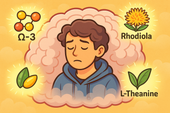
Brain Fog and Body Dysmorphic Disorder: Can Nootropic Supplements Help?
Brain fog often accompanies Body Dysmorphic Disorder, clouding focus and deepening emotional fatigue. Nootropic supplements like L-theanine, Rhodiola, and CoQ10 can help restore mental clarity, balance neurotransmitters, and bring calm energy back to the mind 🌿🧠.
-

How Stress Hormones Like Cortisol May Worsen Body Dysmorphic Disorder
Chronic stress floods the brain with cortisol — the hormone that keeps you on high alert. In Body Dysmorphic Disorder, this chemical overdrive fuels anxiety, distorts self-image, and traps the body in survival mode. Calming cortisol helps restore both peace and perspective 🌿🧠.
-

The Role of Neurotransmitters in BDD—and How Supplements May Help
Neurotransmitters like serotonin, dopamine, glutamate, and GABA shape how people with Body Dysmorphic Disorder perceive themselves. When these brain messengers fall out of balance, perception distorts — but targeted supplements can help restore calm, focus, and emotional regulation 🧠🌿.
-

What Is Body Dysmorphic Disorder? A Deeper Look at the Mind-Body Connection
Body Dysmorphic Disorder (BDD) isn’t just about appearance — it’s about perception. When brain chemistry, trauma, and stress distort self-image, the mind begins to see flaws that aren’t truly there. Healing starts by calming the nervous system and reconnecting mind and body 🪞🧠.
-

Keeping Calm in Competitive Sports: How to Train Your Mind, Body, and Chemistry for Peak Performance
Competitive pressure can overwhelm even the strongest athletes — but calm is trainable. By combining supplements like magnesium, L-theanine, and adaptogens with breathwork and mindset training, you can stay focused, balanced, and in control under any level of stress 🧠🏅.
-

Supplements for Parents Facing Toddler Tantrums: Staying Calm When Little Emotions Run Wild
Toddler tantrums can drain even the most loving parent — but your calm is powerful. With the right supplements like magnesium, L-theanine, and ashwagandha supporting your nervous system, you can stay patient, grounded, and kind, even when emotions run high 🧸🌿.
-

How to Stay Patient With Family During Stressful Holidays
Holiday gatherings can stir up old stress and test your patience — but calm is possible. With nervous system support from magnesium, L-theanine, and adaptogens, plus mindful breathing and clear boundaries, you can stay centered, kind, and grounded even when family chaos unfolds 🎄💞.
-

Supplements to Keep Calm During Traffic Jams
Getting stuck in traffic doesn’t have to ruin your mood. With calming supplements like magnesium, L-theanine, and ashwagandha, you can train your body to stay relaxed and focused behind the wheel — turning gridlock into a moment of grounded patience 🚗🌿.
-
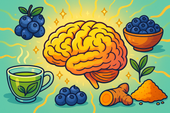
The Role of Antioxidants in Healing Brain Stress from Dissociation
Antioxidants protect the brain from the oxidative stress caused by trauma and dissociation. By neutralizing free radicals and supporting mitochondrial recovery, they help restore clarity, focus, and emotional balance — allowing the mind to heal at the cellular level 🌿🧠.
-
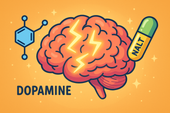
N-Acetyl L-Tyrosine (NALT) for Supporting Mental Clarity
N-Acetyl L-Tyrosine (NALT) fuels dopamine production — the neurotransmitter of focus and motivation. By supporting brain chemistry during stress, NALT helps restore mental clarity, energy, and alertness, making it easier to think clearly and feel present again ⚡🧠.
-

How Ginseng May Improve Focus and Energy in Dissociation
Ginseng helps combat the mental fatigue and fog that often come with dissociation. By supporting mitochondrial energy, balancing neurotransmitters, and regulating cortisol, it gently restores focus, motivation, and emotional presence — helping the mind reconnect with clarity and strength 🌿⚡.
-
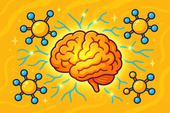
Phosphatidylserine and Dissociation: Supporting Cognitive Function
Phosphatidylserine helps calm the stress response by balancing cortisol, the body’s primary stress hormone. By lowering cortisol spikes, it protects memory, focus, and emotional stability — restoring clarity and mental presence for those struggling with dissociation 🧠🌿.
-
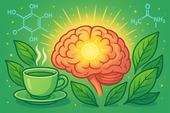
Can Green Tea Extract Help with Dissociative Brain Fog?
Green tea extract may help lift dissociative brain fog by supporting neurotransmitter balance, reducing inflammation, and enhancing energy at the cellular level. With its key compounds EGCG and L-theanine, it promotes calm focus, clarity, and emotional presence — helping you feel more alert and grounded 🍵🧠.
-
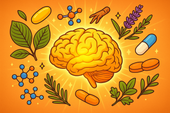
Building a Natural Supplement Stack for Dissociation Support
Building a supplement stack for dissociation means nourishing the brain and body back into communication. By supporting neurotransmitters, gut health, and energy balance through nutrients like magnesium, omega-3s, curcumin, and probiotics, you can help restore clarity, calm, and connection — one layer at a time 🌿🧠.
-

Chamomile and Lavender for Dissociative Anxiety Relief
Chamomile and lavender work together to calm dissociative anxiety by soothing the nervous system and restoring emotional safety. Their natural compounds balance cortisol, enhance GABA activity, and activate the vagus nerve — helping you feel grounded, connected, and at peace again 🌿💜.
-
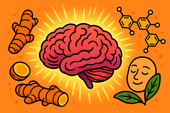
Curcumin for Inflammation and Mental Clarity in Dissociation
Curcumin, the golden compound in turmeric, does more than fight inflammation — it helps clear the mental fog often tied to dissociation. By calming neuroinflammation, balancing neurotransmitters, and supporting mitochondrial energy, curcumin can restore mental clarity, focus, and emotional presence 🌿🧠.
-
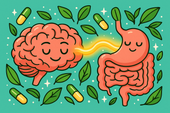
Probiotics and Dissociation: Exploring the Gut–Brain Axis
The gut–brain axis plays a vital role in emotional awareness and presence. When the microbiome is balanced, it supports serotonin production, vagus nerve activity, and calm focus. Probiotics help repair this connection — restoring safety, clarity, and the feeling of truly being in your body again 🌿🧠.
-
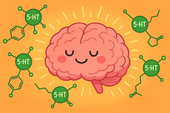
5-HTP for Dissociation: Supporting Serotonin and Emotional Stability
5-HTP helps bridge the gap between emotional numbness and stability by supporting serotonin production — the neurotransmitter that shapes mood, sleep, and sensory awareness. For people experiencing dissociation, 5-HTP may gently restore connection, presence, and emotional balance from the inside out 🌿🧠.

















































